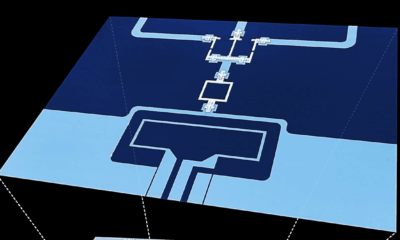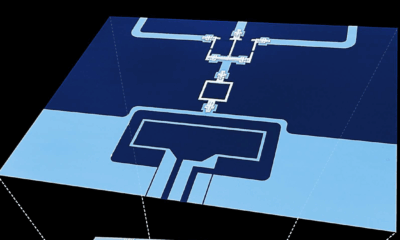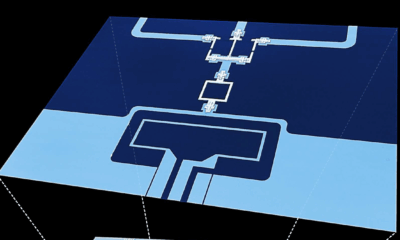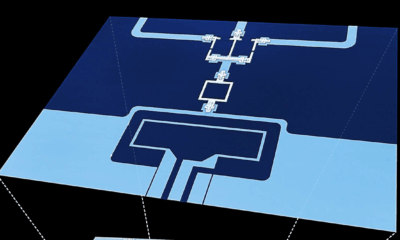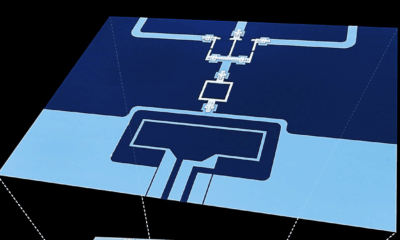Science
Nobel Prize in Physics Honors Breakthroughs in Quantum Technology
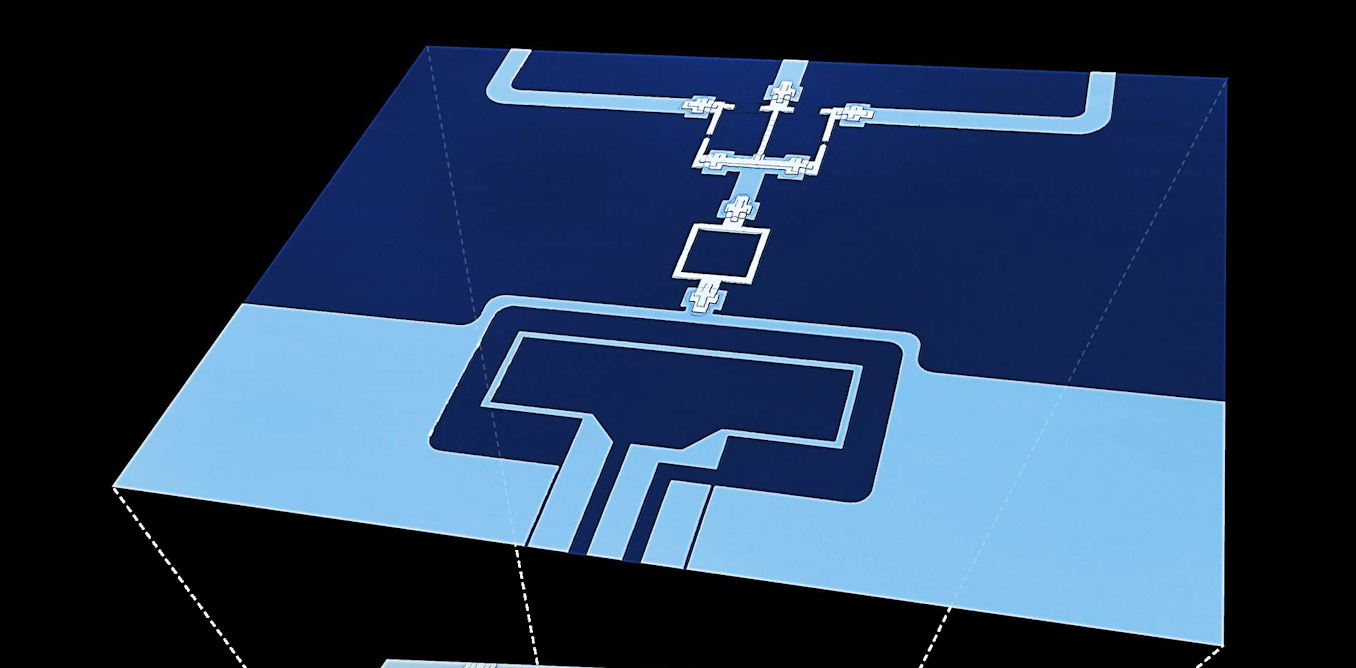
The 2025 Nobel Prize in Physics has been awarded to three scientists for their pioneering research in ultracold electronics, a breakthrough that has propelled the field of quantum technology forward. The laureates—John Martinis, Michel Devoret, and John Clarke—demonstrated that superconducting circuits can exhibit quantum effects, a discovery that has opened the door to practical applications in quantum computing and other fields.
Quantum mechanics, the foundation of modern physics, describes the peculiar behaviors of microscopic particles. Researchers have long sought to harness these principles to tackle complex problems in areas such as chemistry and cryptography, where traditional computing methods fall short. The work of Martinis, Devoret, and Clarke has been instrumental in establishing superconducting circuits as a viable technology for quantum computing.
Groundbreaking Discoveries in Superconducting Circuits
In their seminal research conducted in 1984 and 1985, the trio demonstrated that even large electrical circuits made from materials like niobium and lead could exhibit quantum behavior when cooled to near absolute zero. At these temperatures, these materials become superconductors, allowing them to carry electrical currents without generating heat. Their findings revealed that the voltages and currents within these superconducting circuits are governed by the principles of quantum mechanics, showcasing quantized energy levels and the ability to exist in superpositions of states.
The implications of this research extend far beyond theoretical physics. Today, superconducting circuits are employed in a variety of applications, including fundamental quantum physics studies, simulations of physical systems, and the development of ultra-sensitive quantum sensors. For instance, the Devoret group has recently demonstrated a near-ideal microwave amplifier based on superconducting circuits, a technology that has significant applications in communications, radar, and scientific instruments.
The Rise of Quantum Computing
Superconducting circuits are at the forefront of quantum computing technologies, where multiple quantum systems can interact and become entangled, functioning as a cohesive unit. This entanglement, combined with the principles of quantization and superposition, is what lends quantum computers their remarkable computational power. Researchers utilize quantum bits, or qubits, that can exist in two states, making coherence and controllability essential for effective quantum computing.
While various approaches to quantum computing exist—such as trapped ions, atoms in vacuums, and photons in optical circuits—each comes with inherent trade-offs. Superconducting qubits strike a balance by being large enough for easy control while maintaining the quantum characteristics necessary for effective computation. This versatility has made superconducting circuits a preferred platform for the development of scalable quantum processors.
The ongoing research in this area continually seeks to enhance the coherence of these qubits, improve control mechanisms, and develop techniques for scaling up. Academic institutions, government laboratories, and private companies are collaborating to advance these technologies, paving the way for practical applications in various industries.
The contributions of the Nobel laureates extend beyond their initial discoveries. For instance, John Martinis previously led the quantum processor initiative at Google and has since founded his own company. Michel Devoret continues to support advancements in quantum technologies, while John Clarke has contributed significantly to the field throughout his career. Their mentorship has influenced many researchers in the field, creating a legacy that will continue to shape the future of quantum technology.
As the scientific community celebrates their achievements, it is clear that the work of Martinis, Devoret, and Clarke will serve as a foundation for future innovations in quantum computing and beyond. The ongoing exploration of superconducting circuits promises to unlock new capabilities, impacting a wide range of fields from fundamental physics to practical applications in technology.
-

 World1 week ago
World1 week agoPrivate Funeral Held for Dean Field and His Three Children
-

 Top Stories2 weeks ago
Top Stories2 weeks agoFuneral Planned for Field Siblings After Tragic House Fire
-

 Sports3 months ago
Sports3 months agoNetball New Zealand Stands Down Dame Noeline Taurua for Series
-

 Entertainment3 months ago
Entertainment3 months agoTributes Pour In for Lachlan Rofe, Reality Star, Dead at 47
-

 Entertainment2 months ago
Entertainment2 months agoNew ‘Maverick’ Chaser Joins Beat the Chasers Season Finale
-

 Sports3 months ago
Sports3 months agoSilver Ferns Legend Laura Langman Criticizes Team’s Attitude
-

 Sports1 month ago
Sports1 month agoEli Katoa Rushed to Hospital After Sideline Incident During Match
-

 World2 weeks ago
World2 weeks agoInvestigation Underway in Tragic Sanson House Fire Involving Family
-

 Politics2 months ago
Politics2 months agoNetball NZ Calls for Respect Amid Dame Taurua’s Standoff
-

 Top Stories2 weeks ago
Top Stories2 weeks agoShock and Grief Follow Tragic Family Deaths in New Zealand
-

 Entertainment3 months ago
Entertainment3 months agoKhloe Kardashian Embraces Innovative Stem Cell Therapy in Mexico
-

 World4 months ago
World4 months agoPolice Arrest Multiple Individuals During Funeral for Zain Taikato-Fox



